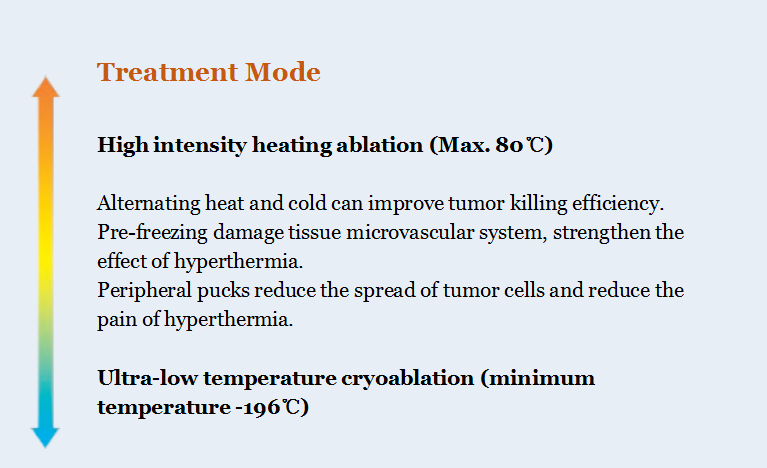Interventional treatment is an emerging discipline that has rapidly developed in recent years, integrating imaging diagnosis and clinical therapy into one. It has become the third major discipline, alongside internal medicine and surgery, running parallel with them. Under the guidance of imaging devices such as ultrasound, CT, and MRI, interventional treatment employs interventional instruments such as needles and catheters to perform a series of minimally invasive techniques, delivering specific tools into the human body through natural body cavities or small incisions for targeted treatment of lesions. It has found significant application in fields such as cardiac, vascular, and neurological diseases.
Tumor interventional treatment is a type of interventional treatment, positioned between internal medicine and surgery, and it has become a prominent approach in clinical tumor treatment. The complex solid tumor ablation procedure conducted by the AI Epic Co-Ablation System is one of the methods used in tumor interventional treatment.
The AI Epic Co-Ablation System is an internationally original and domestically innovative research technology. It is not an actual surgical knife but utilizes a cryoablation needle with a diameter of approximately 2 millimeters, guided by CT, ultrasound, and other imaging techniques. This needle administers deep freezing (at temperatures as low as -196°C) and heating (above 80°C) physical stimulation to the diseased tissue at its energy conversion zone, inducing tumor cell swelling, rupture, and irreversible pathological changes such as congestion, edema, degeneration, and coagulative necrosis of tumor tissues. Simultaneously, deep freezing rapidly forms ice crystals inside and outside cells, micro-veins, and micro-arteries, causing vascular destruction and resulting in a combined effect of local hypoxia. This process aims to repeatedly eliminate tumor tissue cells, ultimately achieving the goal of tumor treatment.
The new methods of tumor interventional treatment have provided new possibilities for the treatment of challenging and incurable diseases. They are particularly suitable for patients who have lost the opportunity for optimal surgery due to factors such as advanced age. Clinical practice has shown that many patients who undergo interventional treatment experience reduced pain, extended life expectancy, and improved quality of life.
Post time: Aug-01-2023

